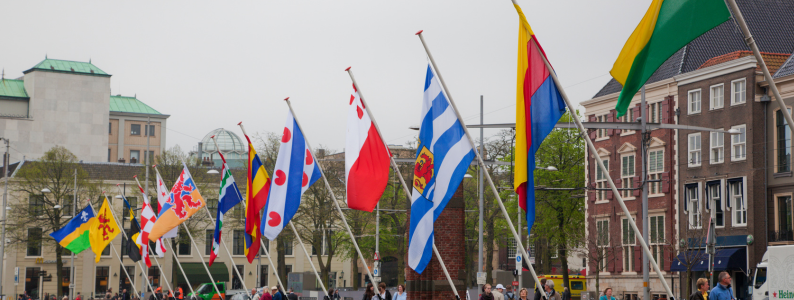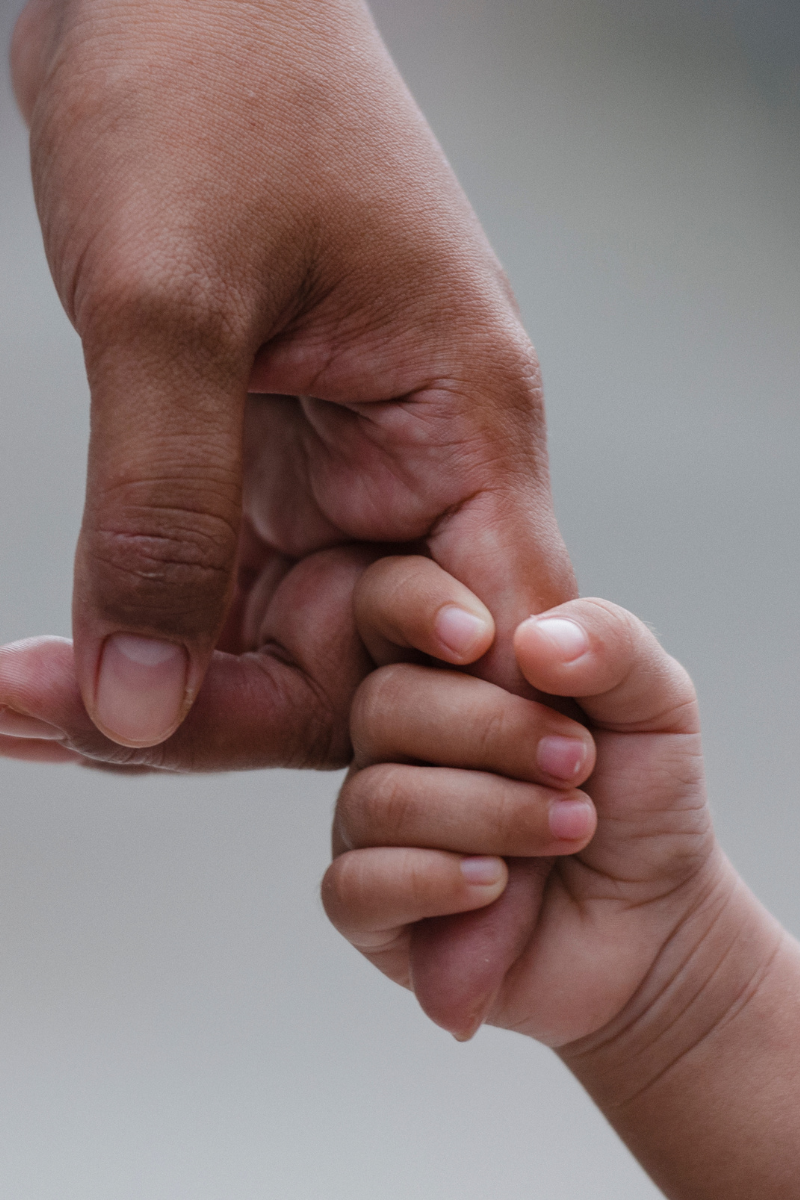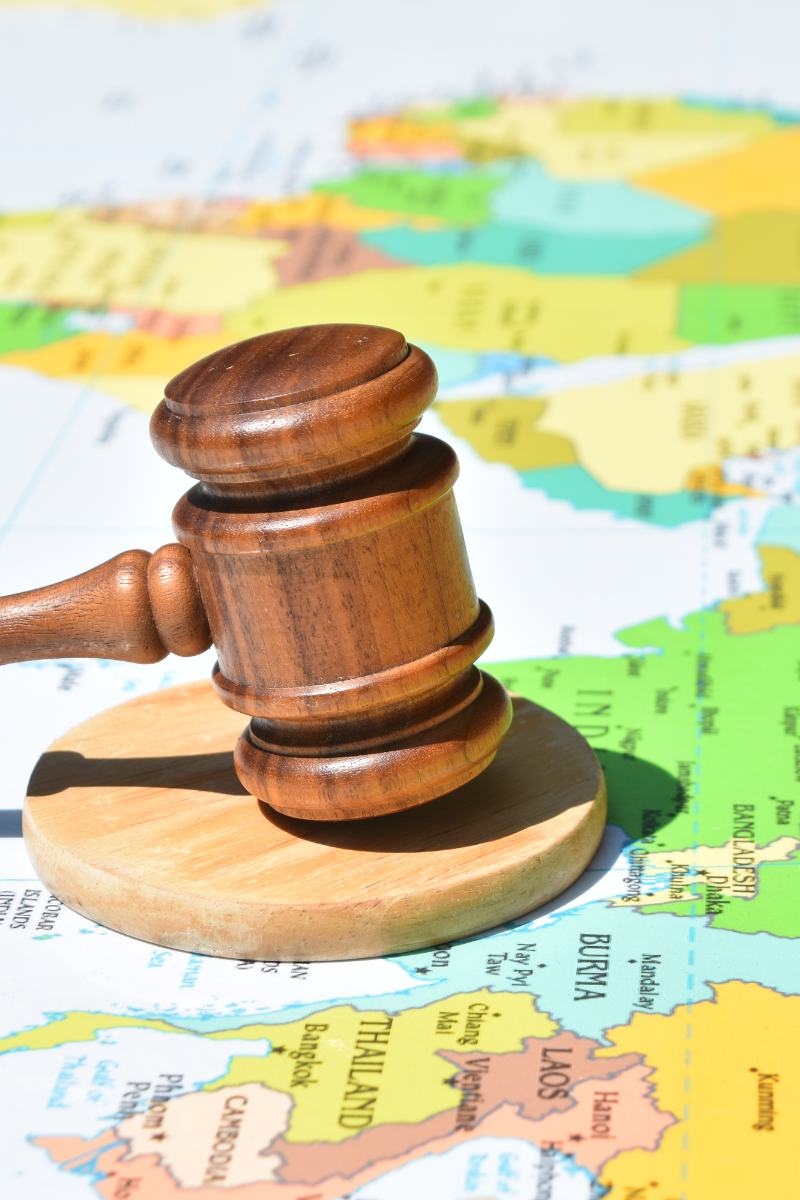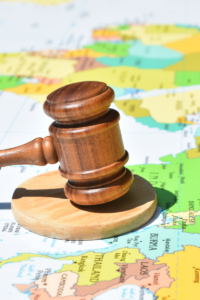Ask a Hague Attorney: How to Win a Hague Convention Case
International child custody disputes are among the most complex legal battles a parent can face. When children are wrongfully taken or retained across international borders, the Hague Convention on the Civil Aspects of International Child Abduction (commonly called the Hague Convention) provides a framework to return children to their country of habitual residence. However, succeeding in a Hague Convention case requires careful navigation of international law, procedural rules, and the nuances of the court system.
At Masters Law Group, we’re highly skilled in international family law, including Hague Convention cases. Our attorneys have extensive experience guiding parents through these challenging cases, helping them understand their rights and strategies to improve their chances of a favorable outcome.
In this blog, we’ll help answer the critical question: How can you win a Hague Convention case?
Understanding the Hague Convention
Before diving into strategies for success, it’s essential to understand the purpose and scope of the Hague Convention.
The Hague Convention is an international treaty signed by over 100 countries. Its primary purpose is to secure the prompt return of children wrongfully removed or retained across international borders. It is not designed to resolve custody disputes per se, but rather to restore the status quo to prevent wrongful removal from a child’s country of habitual residence.
Key Principles of the Hague Convention
- Habitual Residence: The Convention applies when a child has been removed from or retained outside their country of habitual residence. Determining habitual residence is often the first hurdle in a Hague case. Courts consider factors such as where the child attends school, lives with their primary caregiver, and spends most of their time.
- Wrongful Removal or Retention: A removal or retention is considered “wrongful” if it violates custody rights under the law of the child’s habitual residence.
- Prompt Return: The goal of the Convention is to return the child as quickly as possible, generally within six weeks of the application being filed, to reduce the disruption caused by international abduction.
- Limited Defenses: The Hague Convention allows only a narrow set of defenses against return, including claims that:
- The child is well-settled in the new country,
- Returning the child would expose them to physical or psychological harm, or
- The parent seeking return consented to or acquiesced in the removal.
Understanding these principles is essential for any parent or attorney handling a Hague Convention case. Missteps at this stage can severely undermine your position.
The Role of a Hague Attorney
Navigating a Hague Convention case without an experienced attorney can be risky. International child custody law involves multiple jurisdictions, procedural rules, and cultural nuances. A Hague attorney’s role may include:
- Analyzing the case early: Quickly determining whether a removal or retention is wrongful and identifying potential defenses.
- Filing petitions and applications: Helping to ensure the Hague petition is accurate, complete, and filed within the appropriate jurisdiction.
- Gathering evidence: Collecting affidavits, school records, and expert testimony to support your case.
- Negotiating with foreign authorities: Coordinating with the Central Authority in the child’s habitual residence country and navigating local legal systems.
- Representing the client in court: Arguing effectively before judges and presenting compelling evidence in support of your position.
At Masters Law Group, our attorneys combine international law knowledge with litigation experience to guide clients through every stage of the Hague process. Here are the steps we believe are critical to a successful case.
Step 1: Acting Quickly
Time is of the essence in Hague Convention cases. The Convention emphasizes the prompt return of children, and delays can work against you. Courts and Central Authorities view prolonged removal or retention as a factor in the child becoming “well-settled” in the new environment, which may serve as a defense for the abducting parent.
Tips for Acting Quickly:
- Contact a Hague attorney immediately upon learning of the removal or retention.
- File the petition for return as soon as possible, ideally within days, not weeks.
- Gather evidence promptly to demonstrate habitual residence and the wrongful nature of the removal.
Quick action not only helps preserve your legal rights but also demonstrates to the court your commitment to the child’s well-being.
Step 2: Establishing Habitual Residence
One of the most contested issues in Hague cases is habitual residence. A child’s habitual residence is the country where they have lived for a sufficient period, forming a stable environment. Courts consider:
- The length and regularity of the child’s residence in a country
- School enrollment and educational connections
- Medical care and social relationships
- Parental involvement and home environment
Evidence to Support Habitual Residence:
- School and daycare records
- Medical and dental records
- Affidavits from teachers, doctors, or community members
- Lease agreements or utility bills showing where the child lived
Courts do not require the child to have lived in a country for a specific number of years, but consistent evidence of stability is key. A Hague attorney will craft a narrative that emphasizes the child’s established life in the habitual residence country.
Step 3: Proving Wrongful Removal or Retention
The next step is demonstrating that the removal or retention violated custody rights under the law of the child’s habitual residence. This often requires:
- Presenting copies of custody orders, parenting plans, or agreements
- Demonstrating that the removal happened without consent or legal justification
- Providing evidence that the abducting parent acted unilaterally
Key Consideration: Even if the abducting parent believes their actions were justified, the court focuses on the legal rights under the home country’s law, not personal opinions or domestic laws of the new country.
Step 4: Anticipating and Addressing Defenses
The Hague Convention permits limited defenses against return. An experienced attorney anticipates these arguments and prepares evidence to counter them. Common defenses include:
1. The Child is “Well-Settled”
If the child has become well-settled in the new environment, the abducting parent may argue against return. Courts evaluate the length of time in the new location, social and educational ties, and emotional bonds.
Strategy:
- File the petition quickly to prevent the child from becoming well-settled.
- Provide evidence of continued attachment to the habitual residence country.
- Demonstrate that the return would not disrupt the child’s stability if done carefully.
2. Grave Risk of Harm
The abducting parent may claim that returning the child would expose them to physical or psychological harm. Courts require credible evidence of actual risk, not mere speculation.
Strategy:
- Document any threats, abuse, or neglect with affidavits, police reports, or medical records.
- Be prepared to counter exaggerated or unsubstantiated claims.
3. Consent or Acquiescence
If the left-behind parent consented to or later accepted the removal, courts may deny return.
Strategy:
- Collect written or verbal communications to show non-consent.
- Document immediate action upon discovering the removal to demonstrate lack of acquiescence.
Step 5: Gathering Evidence and Testimony
Evidence is the backbone of a successful Hague case. The goal is to provide the court with a clear, factual picture of the child’s habitual residence, the wrongful removal, and the absence of valid defenses.
Evidence May Include:
- Parenting Plans: Official documentation establishing parental rights
- Travel records: Proof of unauthorized movement
- School and medical records: Demonstrates stability and habitual residence
- Witness affidavits: Teachers, caregivers, or family members supporting your claims
- Testimony: Child psychologists, social workers, or other professionals can assess risk or emotional impact
A Hague attorney will organize evidence to present a cohesive, compelling argument. Proper documentation can often be the difference between success and prolonged litigation.
Step 6: Navigating the Court Process
Hague cases require knowledge of both domestic and international law. The procedural requirements vary by state in the U.S., and the court must coordinate with the Central Authority of the country where the child is located.
What to Expect in Court:
- Petition Filing: The left-behind parent files a petition under the Hague Convention.
- Central Authority Coordination: The Central Authority in the child’s habitual residence country may facilitate communications and investigations.
- Hearing: Both parties present evidence, witnesses, and arguments.
- Decision: The court decides whether the child should be returned promptly.
An experienced attorney helps ensure deadlines are met, filings are accurate, and arguments comply with both domestic and international standards.
Step 7: Working With the Central Authority
The Hague Convention relies on Central Authorities in each member country to facilitate cases. These agencies:
- Receive petitions for return
- Communicate with the foreign Central Authority
- Attempt mediation and voluntary resolution
- Provide reports and recommendations to courts
Effective communication with the Central Authority can expedite the process. A Hague attorney leverages these channels to minimize delays and help ensure accurate reporting.
Step 8: Preparing for Appeals
While the goal is a prompt return, courts may issue decisions that require appeal. The appeals process can be complex, particularly when dealing with international legal systems.
Strategy for Appeals:
- Understand the time limits and procedural rules in the relevant jurisdiction
- Prepare a clear appellate brief emphasizing errors or misinterpretations of the law
- Continue gathering evidence to support your case
Masters Law Group has experience handling Hague appeals, helping ensure that your case is vigorously pursued at every stage.
Step 9: Understanding the Emotional Component
Hague Convention cases are emotionally charged. Parents often face fear, frustration, and anxiety. Children may experience confusion, sadness, or stress. A Hague attorney not only navigates the legal system but also helps clients manage expectations and reduce emotional strain.
Tips for Parents:
- Keep communication with the child age-appropriate and supportive
- Avoid disparaging the other parent in front of the child
- Seek professional counseling for the child if needed
- Rely on your attorney for guidance on legal steps, allowing you to focus on the child’s well-being
Step 10: Choosing the Right Hague Attorney
Success in a Hague Convention case hinges on selecting the right legal representation. The ideal Hague attorney:
- Has extensive experience in international child abduction cases
- Understands the nuances of domestic and foreign law
- Can coordinate with Central Authorities in other countries
- Knows how to anticipate defenses and gather compelling evidence
- Provides clear guidance and emotional support throughout the process
At Masters Law Group, we combine legal knowledge with practical experience to maximize the chances of a favorable outcome. Our attorneys act quickly, decisively, and with precision, helping ensure that children are returned safely and parental rights are protected.
Winning a Hague Convention Case
Winning a Hague Convention case is challenging but achievable with the right strategy. Key takeaways include:
- Act quickly to file a petition and prevent the child from becoming well-settled.
- Establish habitual residence with clear, documented evidence.
- Demonstrate wrongful removal or retention under the home country’s law.
- Anticipate defenses such as grave risk, well-settled status, or consent.
- Gather comprehensive evidence and testimony.
- Navigate the court and Central Authority process effectively.
- Be prepared for appeals and further litigation if necessary.
- Manage the emotional component to support the child’s well-being.
- Choose an experienced Hague attorney to guide you with precision and expertise.
At Masters Law Group, we understand the urgency, sensitivity, and complexity of international child abduction cases. Our attorneys act swiftly, strategically, and with precision to protect children and parental rights.
If your child has been wrongfully removed or retained across borders, don’t wait—contact Masters Law Group today to schedule a consultation.
Your child’s safety and your parental rights deserve a Hague attorney who moves quickly, acts decisively, and fights relentlessly.
Successful Hague Convention Cases
2025:
2024:
- District of South Carolina Rock Hill Division / Mexico: Decision and Order/ Motion for Summary Judgment
- Northern District of Illinois / Ireland: Memorandum Opinion and Order
- Western District of Michigan / Brazil: Representative Decisions
- District of Colorado / Colombia: Aguirre, Decision and Order
2023:
- Northern District of California / Cyprus: Efthymiou v. Labonte, Findings of Fact and Conclusions of Law
- Southern District of Iowa / Mexico, Order Adopting Report and Recommendation
Prior:
- Eastern District of Wisconsin / Mexico: Hinnendael, Decision and Order
- Northern District of Illinois / New Zealand: Ho, Memorandum Opinion and Order
- Northern District of Illinois / Lithuania: Sulcaite, Memorandum Opinion and Order
Disclaimer: This blog is for informational purposes only and does not constitute legal advice. Please consult a qualified attorney regarding your specific circumstances.






























